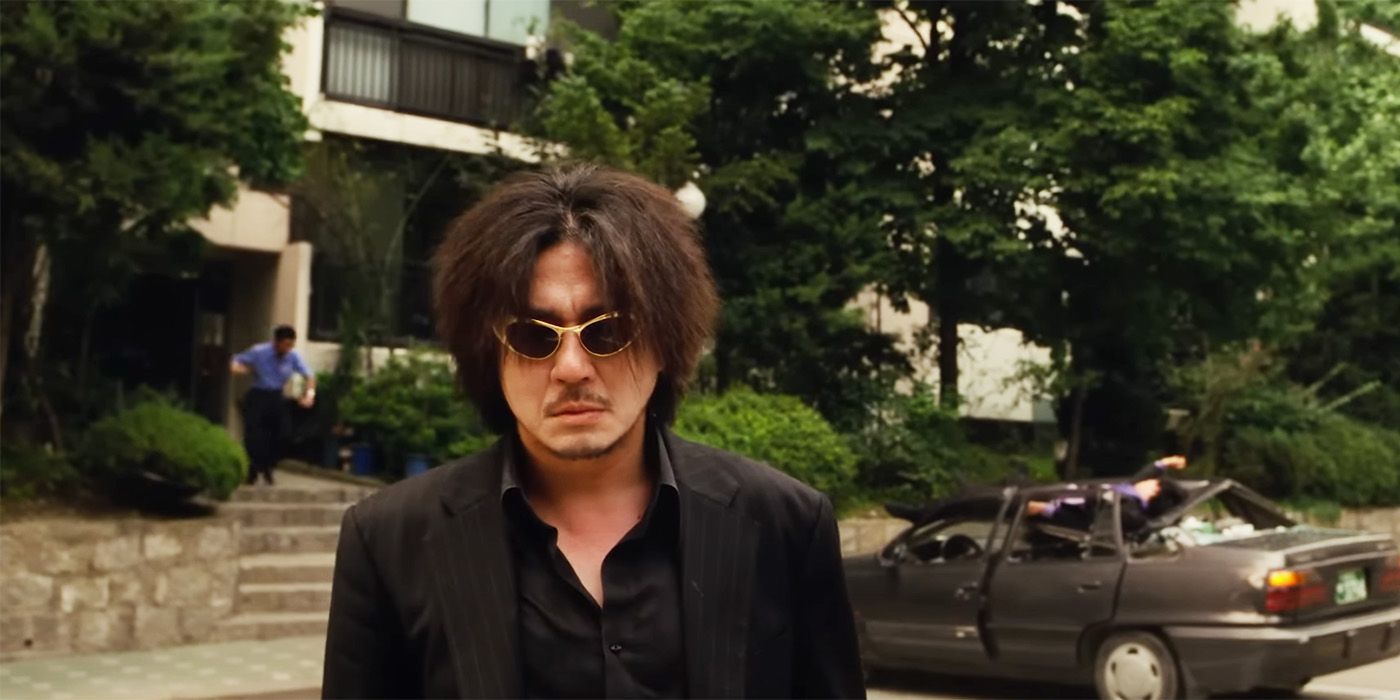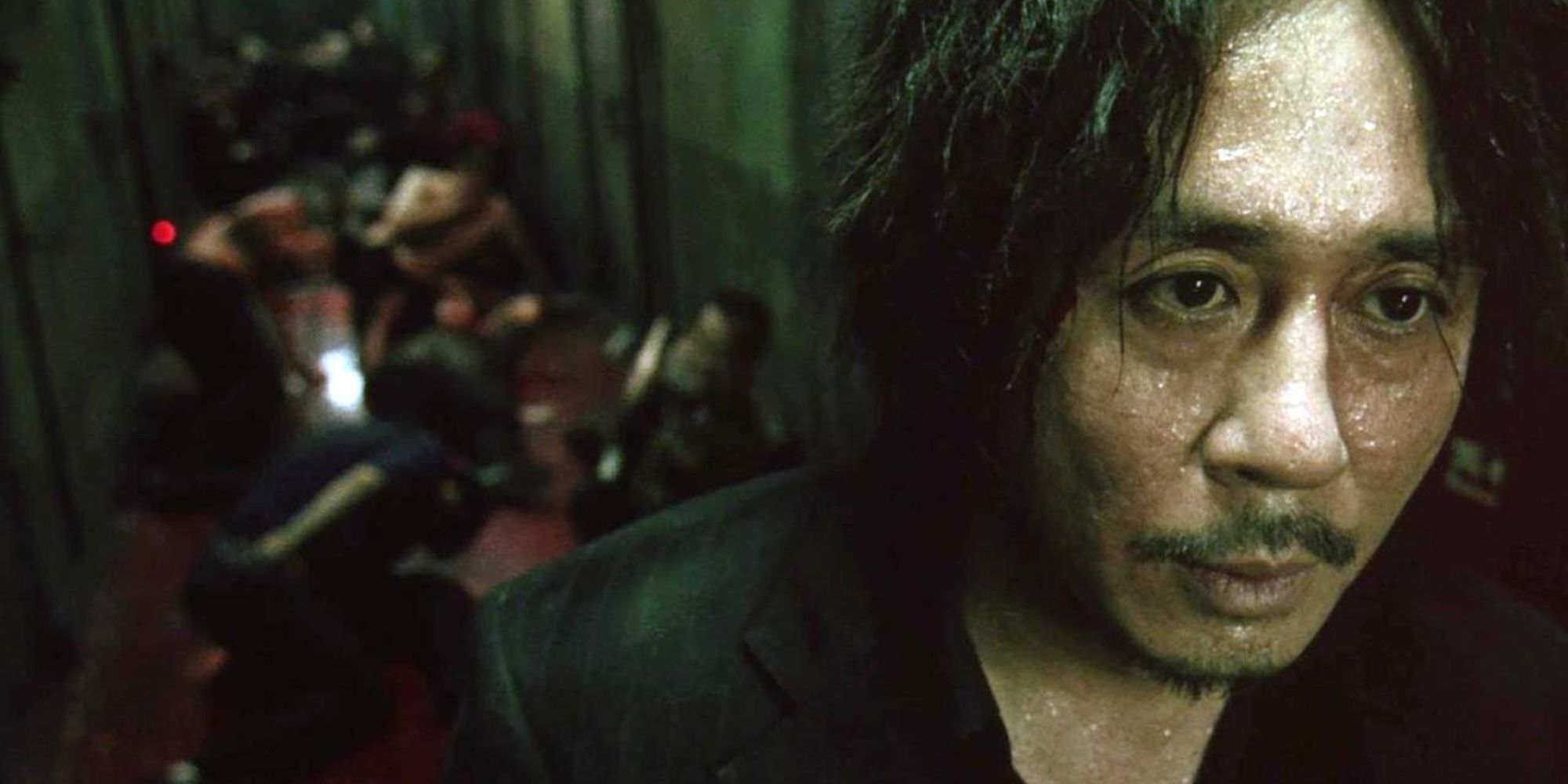The Big Picture
20 years ago, the world at large was introduced to the wonderful world of South Korean cinema through Park Chan-wook’s masterpiece of vengeance, Oldboy. A classic from the moment it was released, Oldboy opened the door for South Korean cinema in the west, being critically acclaimed, winning the Grand Prix at the 2004 Cannes Film Festival, and largely beloved by film fans from all disciplines. Yet, the film has a second layer lurking beneath it. On the surface, Oldboy is a highly stylized, beautifully choreographed film full of blood and gore. The iconic hallway fight scene is easily one of the most influential pieces of cinema of the 21st century. All the big budget, one-take fight scenes you see in Marvel movies and the like owe Park Chan-Wook a fat check. When you dive past the aesthetics of the film, and into what it’s really trying to say, another world is opened up.
How Park Chan-wook Became a Filmmaker
One of the keys in understanding Park’s work is his background. Rather than coming from a pure filmmaking background, he initially studied philosophy, then went on to be a film critic. This is actually a fairly common path for many filmmakers. Most notably, Paul Schrader, Olivier Assayas, and many directors of the French New Wave all started out writing about film rather than making it. This leads to an approach to filmmaking that is heavily focused on subtext. The images these directors present to us are not to be taken literally, but rather gesture to what is left unsaid by the film. With Oldboy, that can be a little bit tricky. A lot of the film is incredibly visually appealing, with very compelling action, set design, and costuming. Sure, there are some scenes that are incredibly disturbing, particularly the octopus scene, but beyond that the film has a very straightforward premise.
A man was imprisoned for 15 years, for no reason, and now he is out, and seeking vengeance against his captors. Oh Dae-Su, played by Choi Min-sik, operates in the standard trappings of a revenge film protagonist. He is cool and removed, hunting for those who did him wrong, armed with 15 years of training for this very moment. It is very easy to see why Oldboy can be viewed as college film student fodder by many people. Incredibly violent, cosigned by Quentin Tarantino, and a third act that is just one of the most insane, disturbing things you’ve ever seen, Oldboy is a film that on the first watch, you are so engrossed on the surface that you never really get to dive any deeper into it.
On a second watch, things start to become more apparent. Once you know the twist, cracks start to appear in the first read you had on the film. Oh Dae-Su is explicitly depicted as an uncaring, awful person in every scene of the film. You root for him because you’re supposed to. That’s how a revenge film works. The one seeking vengeance will always be the hero. But what is vengeance really? What do you gain from it? Not emancipation from your past. Nothing is ever cleansed. This is not an uncommon idea in cinema, The Searchers by John Ford discussed similar themes in 1956. Park Chan-wook may be the modern expert on the subject, having made a whole trilogy on his ideas on vengeance, but filmmakers like Tarantino, Ridley Scott, and Christopher Nolan have all set out to make their own version of a revenge film. What makes Oldboy stand out is the potent mix of slick visuals with ruthless criticism of the genre it portrays so well. Revenge does nothing but destroy everyone in its wake in this film. Park himself would argue that his films are not even about revenge, rather “They are merely the transferring of a guilty conscience. My films are stories of people who place the blame for their actions on others because they refuse to take on the blame themselves. Therefore, rather than movies purporting to be of revenge, it would be more accurate to see my films as ones stressing morality, with guilty consciences as the core subject matter.”
‘Oldboy’ Destroys Revenge Films
When a director portrays something on-screen, the gut reaction for most people is to think “If this is being portrayed, they must think it is right.”. To condemn something, it must be condemned explicitly, not only by the filmmaker, but by the film itself. When you’re finished watching, the film has told you what to think, or at least that is what you would expect. The same is expected of criticism, that you can read it, and you now understand the film in its totality. Oldboy rejects these notions. When you watch it, you aren’t told how to feel. You may feel pushed in a certain way, but Park is aware of that. The seduction inherent to cinema will always push you to root for Oh Dae-Su, so he pushes back. When you get to that third act, you don’t want to see him win anymore. You just want the film to be over. There is no happiness in revenge. And if there is no happiness, why do we clamor to watch it. Why are we all obsessed with seeing bloody violence on-screen, so someone can right a wrong? When you leave the theater, you may just think “Damn that’s crazy,” but that isn’t what sticks with you the most. The horror of Oldboy is not the content itself, but that you have to watch it. You have to sit with these characters, watch them suffer, and think “Why do I want that so bad?” What do we get from watching the cinematic equivalent of a car crashing into a wall for 2 hours? The pleasure of watching the violence goes hand in hand with the inevitable horror of watching what is has reaped for everyone involved.
Oldboy is a masterpiece, made by one of the true modern masters in Park Chan-wook. His entire filmography is filled with fascinating films, beyond just the “Vengeance Trilogy”, a thematic trilogy comprised of Sympathy for Mr. Vengeance, Oldboy, and Lady Vengeance. His most recent outing in Decision to Leave is just as razor sharp as ever, full of masterful filmmaking, deep analysis of film history, as well as self reflection on his own films. South Korean cinema has exploded in recent years, due to the sensation Bong Joon-ho’s Parasite was, but it has a rich cinematic history ready to be explored. Oldboy is not only the perfect film to start your journey on, but one to return to again and again. A beautiful revenge film that destroys the idea of watching one in the first place, Oldboy is an essential piece of cinema. Not just revenge films or South Korean films, it is an absolutely necessary watch for anyone remotely interested in cinema. With a remaster being released into theaters on August 16, go support your local repertory cinema and see one of the best films ever made.

.jpg)







